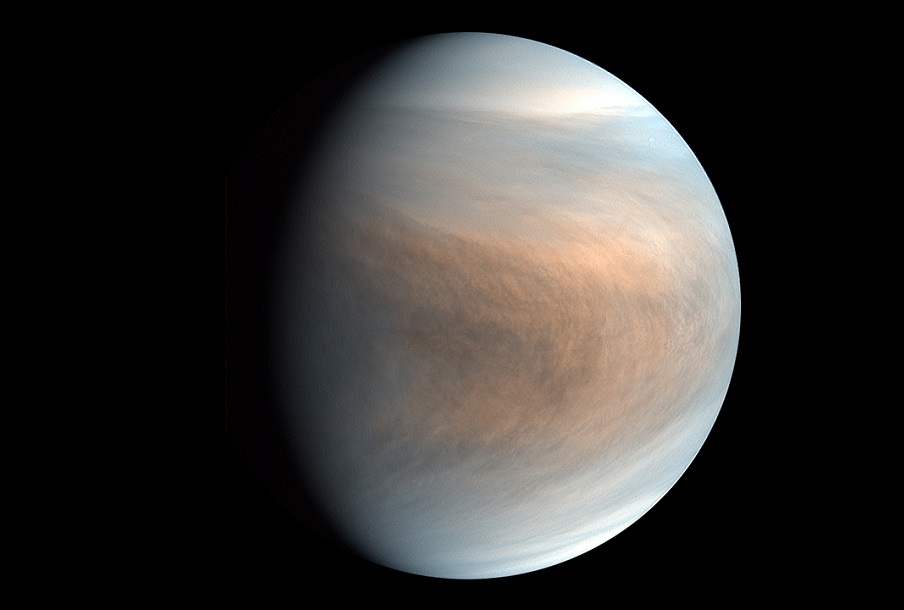The massive atmosphere of Venus is moving very fast. It slows down the daily rotation of the planet and thus does not allow it to compare with the duration of the year. Thus, the planet escapes from tidal locking.

Venus’s Atmosphere affects its rotation
Scientists have come to the conclusion that the atmosphere of Venus significantly affects its rotation. Most planets rotate around their axis faster than around the Sun. But with our nearest neighbor, it’s the opposite. One year there lasts 224 days, and the local day is 243 times longer than the terrestrial one.
The reason for this is the combination of the influence of the Sun and the atmosphere is 10 times heavier than the earth. According to the calculations of researchers, the tidal forces of our luminary in general should equalize the periods of rotation of Venus around the axis and around it. This is usually the case with tidally locked bodies: their rotation period increases all the time. This stops at the moment when one side of the planet is always turned towards the light.
But the atmosphere of Venus is not only dense. It also orbits the planet in just four Earth days. At the same time, it does this in the opposite direction relative to the rest of the planet. Therefore, the friction of gas masses slows down the planet all the time, and it avoids the situation of tidal locking.
Why new findings are important
The situation with Venus is quite unique for the Solar System. Other rocky bodies have only a thin layer of atmosphere, the mass of which is insignificant compared to the planet. A new study shows that more massive atmospheres need to be taken into account when modeling the evolution of planetary rotation.
This is especially important for exoplanets. Among the 5,000 worlds already discovered outside the Solar System, there are many that orbit red dwarfs. Planets in the “zone of life” of these stars in many cases turn out to be tidally entrained. Therefore, there is a fear that they are unfit for life due to the fact that it is always a hot day on one side, and an icy night on the other.
A massive atmosphere can slow down the rotation of an exoplanet around its axis until a longer time, for the duration of its year, as happens with Venus. For exoplanets, this will mean that the day will last for several days. But still the normal change of day and night will occur.
According to phys.org

